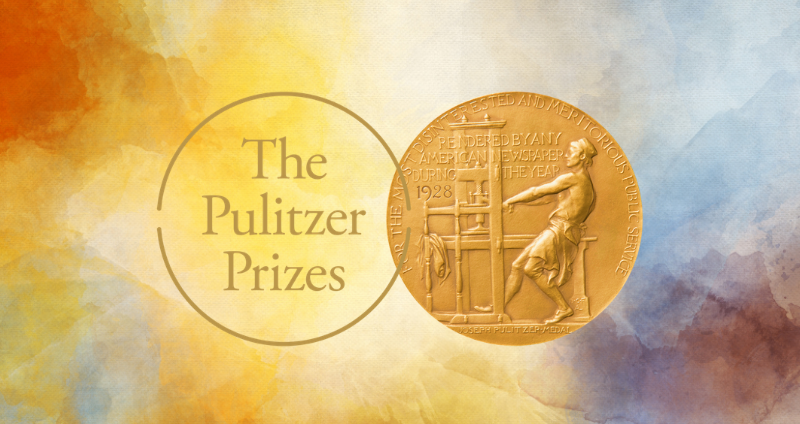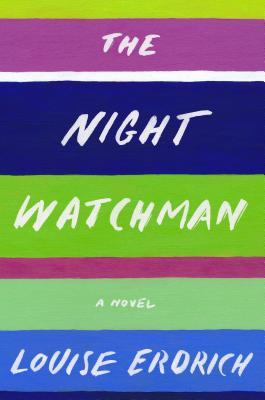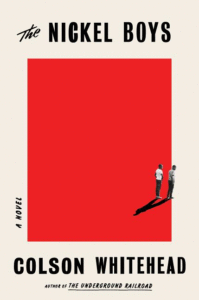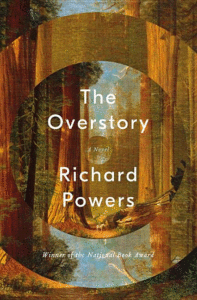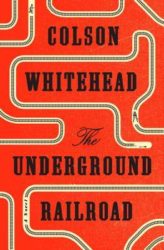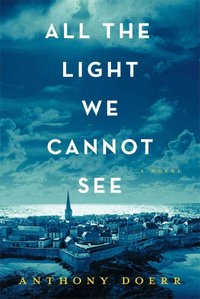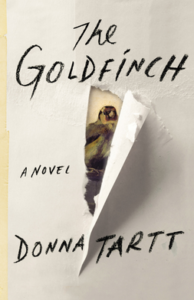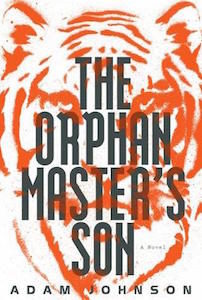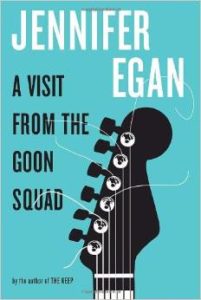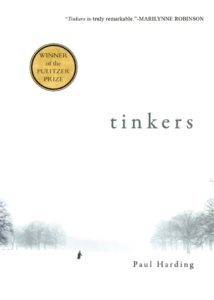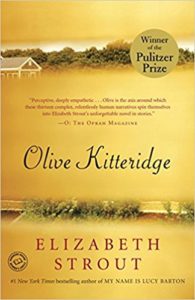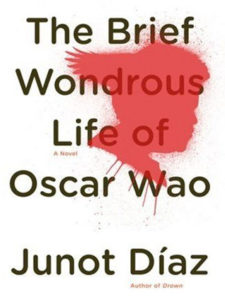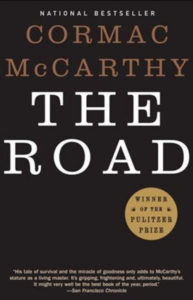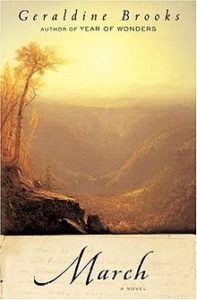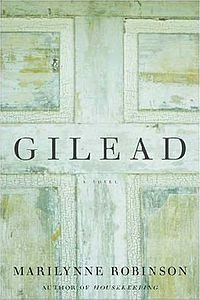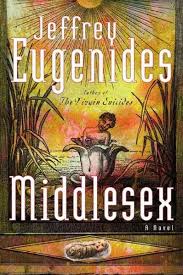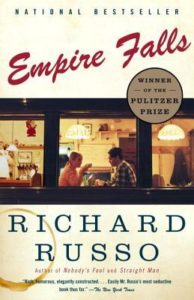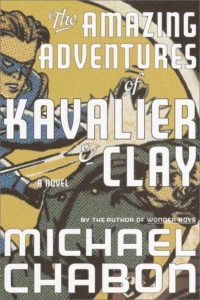Have a look back at every Pulitzer Prize for Fiction winner of the 21st Century.
On Monday, at around 3PM (EST), from Columbia University in New York City, the winner of this year’s Pulitzer Prize for Fiction will be announced.
As well as a check for a cool $15,000 dollars (which feels a little low, tbh), the victor (if there is to be one; see 2012) will gain entry to a very exclusive club—one which includes the likes of John Steinbeck, Ernest Hemingway, Harper Lee, and Toni Morrison.
So, as you wait with bated breath to see which of your favorite authors gets to take home that giant gold coin with Benjamin Franklin’s face on it, why not stroll down memory lane with us as we look back over the last twenty-two recipients of this prestigious award.
*
2022
Joshua Cohen, The Netanyahus: An Account of a Minor and Ultimately Even Negligible Episode in the History of a Very Famous Family
“The Netanyahus is Cohen’s sixth novel, his most conventional and his best to date. It is a tour de force: compact, laugh-out-loud funny, the best new novel I’ve read this year … Among its other merits, then, The Netanyahus can claim the distinction of being probably the funniest novel ever written about contending historiographies … Cohen writes with humour and wit…but comedy is a way of seeing things, as well as describing them … Cohen’s lesson, in this determinedly comic novel, is that history happens as farce and tragedy simultaneously; the side you see depends, in part, on where you happen to be standing.”
–John Phipps (The Times)
2021
Louise Erdrich, The Night Watchman
“In this season of literary wildfires, when cultural borrowings have unleashed protests that have shaken the publishing industry, the issue of authenticity is paramount. Erdrich retakes the lead by offering the reader the gifts of love and richness that only a deeply connected writer can provide. You never doubt these are her people. The author…delivers a magisterial epic that brings her power of witness to every page. High drama, low comedy, ghost stories, mystical visions, family and tribal lore — wed to a surprising outbreak of enthusiasm for boxing matches — mix with political fervor and a terrifying undercurrent of predation and violence against women. For 450 pages, we are grateful to be allowed into this world … I walked away from the Turtle Mountain clan feeling deeply moved, missing these characters as if they were real people known to me. In this era of modern termination assailing us, the book feels like a call to arms. A call to humanity. A banquet prepared for us by hungry people.”
–Luis Alberto Urrea (The New York Times Book Review)
2020
Colson Whitehead, The Nickel Boys
“The Nickel Boys—a tense, nervy performance—is even more rigorously controlled than its predecessor. The narration is disciplined and the sentences plain and sturdy, oars cutting into water. Every chapter hits its marks. Even if your prose taste runs to curlicue and adornment (mine does), the restraint feels significant. Whitehead comports himself with gravity and care, the steward of painful, suppressed histories; his choices on the page can feel as much ethical as aesthetic. The ordinary language, the clear pane of his prose, lets the stories speak for themselves … while Whitehead is frank about the barbarity his characters endure, there are few scenes of explicit violence—most of it happens offstage. And none of the violence is exaggerated. A reverence for the victims can be detected in this refusal to sensationalize their suffering … Whitehead has written novels of horror and apocalypse; nothing touches the grimness of the real stories he conveys here, of a cinder-block building that still stands, a school that was closed only eight years ago. Its starkness and irresolution recalls the historian Yosef Hayim Yerushalmi’s point that the opposite of forgetting is not merely remembrance. It is justice.”
–Parul Sehgal (The New York Times)
2019
Richard Powers, The Overstory
“…his monumental novel The Overstory accomplishes what few living writers from either camp, art or science, could attempt. Using the tools of story, he pulls readers heart-first into a perspective so much longer-lived and more subtly developed than the human purview that we gain glimpses of a vast, primordial sensibility, while watching our own kind get whittled down to size…. The descriptions of this deeply animate place, including a thunderstorm as experienced from 300 feet up, stand with any prose I’ve ever read. I hesitate to tell more, and spoil the immense effort Powers invests in getting us into that primal forest to bear witness … The science in this novel ranges from fun fact to mind-blowing, brought to us by characters—some scientists, mostly not—who are sweet or funny or maddening in all the relatable ways. The major players number more than a dozen, all invested with touching humanity, and they arrive with such convincing, fully formed résumés, it’s hard to resist Googling a couple of them to see if they’re real people.”
–Barbara Kingsolver (The New York Times Book Review)
2018
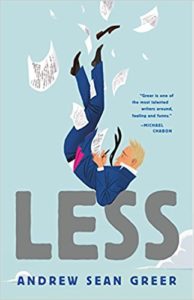
Andrew Sean Greer, Less
“…[a] thoroughly delightful novel … Greer is an exceptionally lovely writer, capable of mingling humor with sharp poignancy … Greer is brilliantly funny about the awkwardness that awaits a traveling writer of less repute … Whether he’s pining after an old lover or creeping along a ledge four flights up, hoping to climb through the window of his locked apartment, this is the comedy of disappointment distilled to a sweet elixir. Greer’s narration, so elegantly laced with wit, cradles the story of a man who loses everything: his lover, his suitcase, his beard, his dignity.”
–Ron Charles (The Washington Post)
2017
Colson Whitehead, The Undergound Railroad
“…a potent, almost hallucinatory novel that leaves the reader with a devastating understanding of the terrible human costs of slavery. It possesses the chilling matter-of-fact power of the slave narratives collected by the Federal Writers’ Project in the 1930s, with echoes of Toni Morrison’s Beloved, Victor Hugo’s Les Misérables, Ralph Ellison’s Invisible Man, and brush strokes borrowed from Jorge Luis Borges, Franz Kafka and Jonathan Swift … [Whitehead] has told a story essential to our understanding of the American past and the American present.”
–Michiko Kakutani (The New York Times)
2016
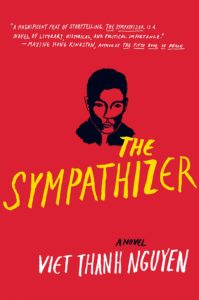
Viet Thanh Nguyen, The Sympathizer
“…surely a new classic of war fiction. Nguyen has wrapped a cerebral thriller around a desperate expat story that confronts the existential dilemmas of our age. Startlingly insightful and perilously candid … The contemporary relevance of [the] devastating final section can’t be ignored, but The Sympathizer is too great a novel to feel bound to our current soul-searching about the morality of torture. And it’s even more than a thoughtful reflection about our misguided errand in Southeast Asia. Transcending these historical moments, Nguyen plumbs the loneliness of human life, the costs of fraternity and the tragic limits of our sympathy.”
–Ron Charles (The Washington Post)
2015
Anthony Doerr, All the Light We Cannot See
“For such a disciplined, measured writer, Doerr’s storytelling mode here is unexpectedly vigorous. Darting back and forth between the two protagonists in the six years leading up to 1944, the book moves with the pace of a thriller. Each two- to four-page chapter offers a sharply etched glimpse into character and circumstance. As a result, the radiant beauty of the prose – and it is gorgeous – never makes us pause too long. The story’s headlong action propels us ever onward … Doerr’s novel spotlights history in vivid primary colors. He makes us not only see but also feel the desolation and barbarism of war … On this stage, at once vast and intimate, Doerr works his magic on the great themes of destiny versus choice, entrapment versus liberation, atrocity versus honor.”
–Dan Cryer (The San Francisco Chronicle)
2014
Donna Tartt, The Goldfinch
“The Goldfinch is a rarity that comes along perhaps half a dozen times per decade, a smartly written literary novel that connects with the heart as well as the mind. I read it with that mixture of terror and excitement I feel watching a pitcher carry a no-hitter into the late innings. You keep waiting for the wheels to fall off, but in the case of The Goldfinch, they never do … Surprisingly few novelists write well of grief, but Tartt — whose language is dense, allusive and so vivid it’s intoxicating — does it as well as it can be done … Tartt depicts the friendship of these two cast-adrift adolescent boys with a clarity of observation I would have thought next to impossible for a writer who was never part of that closed male world … The Goldfinch is a triumph with a brave theme running through it: art may addict, but art also saves us from ‘the ungainly sadness of creatures pushing and struggling to live.’”
–Stephen King (The New York Times Book Review)
2013
Adam Johnson, The Orphan Master’s Son
“The Orphan Master’s Son is no more about North Korea than The Merchant of Venice is about Venice under the doges. North Korea is the setting for an imaginary story about a man who gradually, though always dramatically, discovers his own humanity in a state that does everything to suppress it … This is a fantasy, a fiction, a work of literary imagination. That the setting bears a strong resemblance to aspects of life in North Korea gives it an anchor in reality. And the cliché that fiction can cut to deeper truths than fact holds true of this novel too. It tells us something profound about the pathology of the totalitarian state.”
–Ian Buruma (The New York Review of Books)
2012
No Award Given (boo)
Finalists:
· Train Dreams by Denis Johnson
· Swamplandia! by Karen Russell
· The Pale King by David Foster Wallace
2011
Jennifer Egan, A Visit From the Goon Squad
“As thought-provoking and entertaining as Egan’s speculative projections are, A Visit From the Goon Squad is, in the end, far more than a demonstration of the author’s skill in bending time, form, and genre. It’s a distinctive and often moving portrayal of how — even when their inhabitants don’t realize it — lives can intersect and influence one another in profound and enduring ways.”
–Jessica Treadway (The Boston Globe)
2010
Paul Harding, Tinkers
“In this astonishing novel, Paul Harding creates a New England childhood, beginning with the landscape. And he does this, miracle of miracles, through the mind of another human being – not himself, someone else … Photographs and memories and old fears move through him. Clocks and pots and old heirlooms, all bearing stories, flesh out his history and that of his ancestors. In his imagination the whole structure, the life that took generations to build, comes tumbling down.”
–Susan Salter Reynolds (The Los Angeles Times)
2009
Elizabeth Strout, Olive Kitteridge
“Here’s a perfect example of a character you’d never be friends with, but whom you can’t stop reading about: Her name is Olive Kitteridge, and she’s the title character of Elizabeth Strout’s book of short stories … Olive is a character who’s as bad as you’d be if you let yourself—and that’s partly what drives the book: You can’t wait to see what she’s going to do next … There’s at least one secret in every story—and one life-changing moment. Maybe that’s why this book delivers what you hardly ever get in a literary novel: suspense.”
–Melissa Bank (NPR)
2008
Junot Diaz, The Brief Wondrous Life of Oscar Wao
“Díaz sings straight to the heart of urban Spanglish, and he’s not waiting for outsiders to catch up. His Spanish is untranslated, as is his freestyle hip-hop slang. Clearly, he’s writing for his people—Dominicans on the island and around New York City—and as far as he’s concerned, everyone else is just listening in … One of the most perceptive things about Díaz’s novel is the way it shows how machismo can crush both the men who don’t conform and those who do … Díaz combines heartbreaking realism with the wildest sort of comic-book fantasy, moving beyond the surrealism of Borges and Cortázar and the magical realism of Márquez and Allende to break new ground. Call it comix realism— it gives Díaz a tremendous verbal and emotional range.”
–Marcela Valdes (Bookforum)
2007
Cormac McCarthy, The Road
“The paradox in every part and sentence of the post-apocalyptic narrative—evoking even as it denies—is repeated as if fractally by The Road as a whole … All the elements of a science fiction novel of the post-apocalypse are present or at least hinted at…There are bits of satire of a very dark order in the hints that religious extremism caused the holocaust, and in the relentless way McCarthy deprives the foolish reader of the reassurances … The Road is neither parable nor science fiction, however, and fundamentally it marks not a departure but a return to McCarthy’s most brilliant genre work, combined in a manner we have not seen since Blood Meridian: adventure and Gothic horror.”
–Michael Chabon (The New York Review of Books)
2006
Geraldine Brooks, March
“I believe Geraldine Brooks’ new novel, March, is a very great book. I believe it breathes new life into the historical fiction genre, the borrowing-a-character-from-the-deep-past phenomenon, the old I-shall-tell-you-a-story-through-letters tradition. I believe it honors the best of the imagination. I give it a hero’s welcome … The book’s protagonist, one Mr. March, has, in other words, been borrowed twice–first from a beloved novel (a novel that was extrapolated from Alcott’s own life) and second from history. He is, however, no mere pastiche; Brooks has magnificently wielded the novelist’s license, shifting some facts and superimposing the demands of story over the sometimes less-compelling signposts of the past … However brilliant it is, the conceit of March is only part of its glory. It’s the story, as it always must be the story, that qualifies March for supreme (forgive the adjective) greatness.”
–Beth Kephart (The Chicago Tribune)
2005
Marilynne Robinson, Gilead
“Robinson’s novel teaches us how to read it, suggests how we might slow down to walk at its own processional pace, and how we might learn to coddle its many fine details. Nowadays, when so many writers are acclaimed as great stylists, it’s hard to make anyone notice when you praise a writer’s prose. There is, however, something remarkable about the writing in Gilead … When Robinson reduces her language, it’s because secular meaning has exhausted itself and is being renovated by religious meaning … Robinson’s book ends in characteristic fashion, with its feet planted firmly on the Iowa soil and its eyes fixed imploringly on heaven, as a dying man daily pictures Paradise but also learns how to prolong every day – to extend time, even on earth, into a serene imitation of eternity.”
–James Wood (The New York Times Book Review)
2004
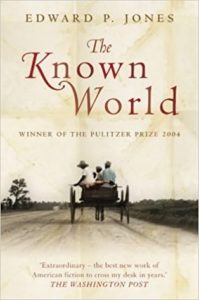
Edward P. Jones, The Known World
“One great achievement of Edward Jones’s Pulitzer prize-winning novel The Known World is the circumscription of its moral vision, which locates the struggle between good and evil not in the vicissitudes of the diabolical slaveholding system of the American south, but inside the consciousness of each person, black or white, slave or free, who attempts to flourish within that soul-deadening system …a 19th-century concoction, rich in character and plot, comprised of chapters with ironic titles…narrated by an omniscient voice that can penetrate into the souls of the characters even as they leave their bodies behind … a voice that understands the madness of slavery as part of a grander picture, one that begins with bright angels clanging closed the gates on our progenitors, and Satan.”
–Valerie Martin (The Guardian)
2003
Jeffery Eugenides, Middlesex
“At the risk of oversimplifying a book so superabundant with characters, history and incident, the story of Cal Stephanides (nee Calliope), the narrator and protagonist of Middlesex, suggests that while facts can tell us a great deal about life, they are never quite sufficient to the task … Middlesex begins as a generous, tragicomic family chronicle of immigration and assimilation, becomes along the way a social novel about Detroit, perhaps the most symbolic of American cities, and incorporates a heartbreaking tale of growing up awkward and lonely in ’70s suburbia. It’s a big, affectionate and often hilarious book.”
–Andrew O’Hehir (Salon)
2002
Richard Russo, Empire Falls
“Russo knows his characters too well to allow them the luxury of victimhood or to indulge in the grim determinism of some of his peers. His humane sympathy for weakness and self-deception – a sympathy extended even to the manipulative Mrs. Whiting and her minion, a dimwitted policeman named Jimmy Minty – does not rule out stern satiric judgment. The people of Empire Falls are not held down simply by fate or by their own bad choices but by the active collaboration of their neighbors and loved ones … Russo’s command of his story is unerring, but his manner is so unassuming that his mastery is easy to miss. He satisfies every expectation without lapsing into predictability, and the last section of the book explodes with surprises that also seem, in retrospect, like inevitabilities. As the pace quickens and the disparate threads of the narrative draw tighter, you find yourself torn between the desire to rush ahead and the impulse to slow down.”
–A. O. Scott (The New York Times)
2001
Michael Chabon, The Amazing Adventures of Kavalier & Clay
“I’m not sure what the exact definition of a ‘great American novel’ is, but I’m pretty sure that Michael Chabon’s sprawling, idiosyncratic, and wrenching new book is one … The story Chabon tells is a quirky and yet quintessentially American rags-to-riches-and-beyond tale that manages to include a boat full of Jewish refugees fleeing Hitler, an attempt to spirit the Golem out of Prague, the history of comic books, a visit to Houdini’s grave, a screening of Citizen Kane, a party for Salvador Dalí, bar mitzvahs at the Pierre, a lower-middle-class Brooklyn apartment and an ‘arty’ Greenwich Village townhouse, a straight love affair, a gay love affair, Governor Al Smith, and Eleanor Roosevelt.”
–Daniel Mendelsohn (New York Magazine)
2000
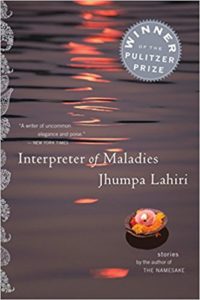
Jhumpa Lahiri, Interpreter of Maladies
“As is natural for a young writer, Lahiri spends some of her time exploring the terrain staked out by her literary precursors. Like Carver, she writes about a young couple who have fallen out of love and are playing a bittersweet game amid the detritus of their life together. Like Hemingway, she writes about a tour guide who has more heart than the bourgeois couple who hire him; he is seduced by the wife’s glamour and then appalled by her cruelty. Like Isherwood, she writes about an earnest young man studying his landlady, whose calcified habits at first unnerve him and then draw out his tenderness. But none of her stories are apprentice work. Lahiri revises these scenarios with unexpected twists, and to each she brings her distinctive insight into the ways that human affections both sustain and defy the cultural forms that try to enclose them … She breathes unpredictable life into the page, and the reader finishes each story reseduced, wishing he could spend a whole novel with its characters. There is nothing accidental about her success; her plots are as elegantly constructed as a fine proof in mathematics.”
–Caleb Crain (The New York Times Book Review)


